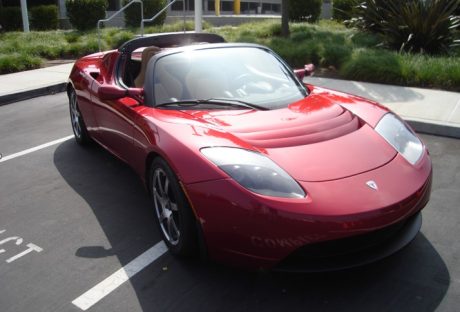Buying a car ensures access to the vehicle at all times, but not everyone can incorporate this hefty purchase into their financial plans.
In that case, you always have the alternative to lease a car, meaning you’ll only have to pay for the time you drive it before returning it to the company when the lease’s terms end.
Car leasing has gained popularity in recent years, with statistics showing that around one-fifth of new cars in America were leased in 2022. If you’re considering renting a vehicle for the first time, keep reading as we delve into everything you need to know about the process.
What is Car Leasing?
When you opt for vehicle leasing, you sign an agreement or similar documents with the car dealer or company to rent a car for the mentioned term (usually some years). You’ll have to return the vehicle as the term ends, and you can’t claim ownership over it.
Most individuals pick leasing over buying a vehicle because they get to pay less cash out-of-pocket, gain peace of mind due to the maintenance coverage and manufacturer warranty, and secure monthly payments.
Additionally, if you prefer enjoying the latest technology or driving the newest models, a car lease enables you not to be bound to only one vehicle or worry about selling it. Keep in mind that you have to stay below or at the mileage limit stated in your lease agreement; if you exceed it, you might be charged excess mileage penalties when you return the car.
How Does it Work?
If you wish to lease a car, there might be a requirement for you to sign the lease agreement outlining the conditions and terms of the lending arrangement. The lease agreement typically includes the monthly payments you’ll make, the duration of how long you’ll keep the car, and mileage limits.
Any fees such as the acquisition fee, excess wear and use, disposition fee, applicable termination fees, and other end-of-term charges should also be specified. We recommend researching which car lease fees to avoid so you’re not subjected to extra charges at the end of your lease term.
Look out for information regarding use, wear, and maintenance standards within the lease agreement and check whether your lessor provides the option to purchase the car once the term ends. You may be able to buy the vehicle, return it, or extend your lease, depending on your contract’s terms and conditions.
Purchasing your leased vehicle can be influenced by several factors, such as your budget, the car’s performance, and the vehicle’s market value compared to the purchase option price. It is a good deal to consider If the purchase option price costs less or is equal to the market value.
How Much Does it Cost?
The cost of leasing a vehicle depends on how long you plan on leasing it and the type of car you want to rent. It’s common knowledge that the shorter the lease period and the more expensive the vehicle, the higher the monthly payment. In contrast, a longer lease period and a cheaper car will result in you paying reduced monthly payments.
Rather than paying for the car’s entire value, leasing enables your monthly payments to cover the rent, taxes, and the vehicle’s depreciation over the lease term. As you don’t have to finance the purchase price, your payment will likely be much lower.
Mistakes to Avoid When Leasing a Car

In this section, we’ll explain some things to avoid during the car lease process:
1. Don’t Pay Too Much Up Front
While car dealers advertise low monthly lease payments, you might need to pay several thousand dollars to cover a portion of the total lease in advance to meet the affordable payment term. If the car is stolen or wrecked within the first few months, your insurance company is responsible for reimbursing the car’s value to the leasing company. However, it is unlikely that your down payment will be reimbursed. Not only will you lose the car, but you will also experience a monetary loss.
Depositing no more than $2,000 upfront is recommended for car leasing. In fact, it even makes sense to put nothing down and pay everything in the monthly lease payment if this arrangement works better for you.
2. Invest in Gap Insurance
Gap insurance is the deduction from the car’s value of what you are left to owe on your lease. If you plan on leasing your car, purchasing gap insurance is in the best interest of yours. Suppose your contract enables you to buy the car for $15,000 at the lease’s end, but you damage it before the lease expires. In that case, your insurance company will pay the dealership the car’s current market value.
With gap insurance, this difference is covered. Most leases include gap insurance, and the dealer might offer to sell you one, but you’ll likely find cheaper policy options with traditional insurance companies. This small investment is worth the cost and will sort you out if something goes wrong with the vehicle.
3. Don’t Lease the Car for Too Long
Ensure your offered lease period is shorter than or matches the car’s warranty period. Different manufacturers offer different warranties, but most generally last up to 36,000 miles or three years. You’ll have to invest in an extended warranty if you decide to keep it for a longer period and to avoid paying for the ensuing repair and maintenance costs in addition to the monthly lease payments.
Rather than leasing the vehicle for an extended period, buying the car is better as you might drive it for several years without having to fret over the monthly payments. List down the pros and cons of buying a car vs. leasing it in the long term, and pick the option that saves you more money in the long run.
Endnote
Leasing a car entails borrowing one rather than buying a new or used vehicle, including an in-depth deal with the leasing company or dealer.
There are various factors to consider before you sign off on this long-term commitment, so do your homework, run the numbers, and shop around to depict whether leasing is right for you. As is the case with any financing transaction, a high credit score will help you secure a lower interest rate on your leased car.
Read Also:
- 5 Different Types of Car Accident Claim
- Knowing Your Vehicle: 5 Maintenance Tips for Porsche Owners
- Used Cars In Tucson Offer You The Best Range Of Driving Options























